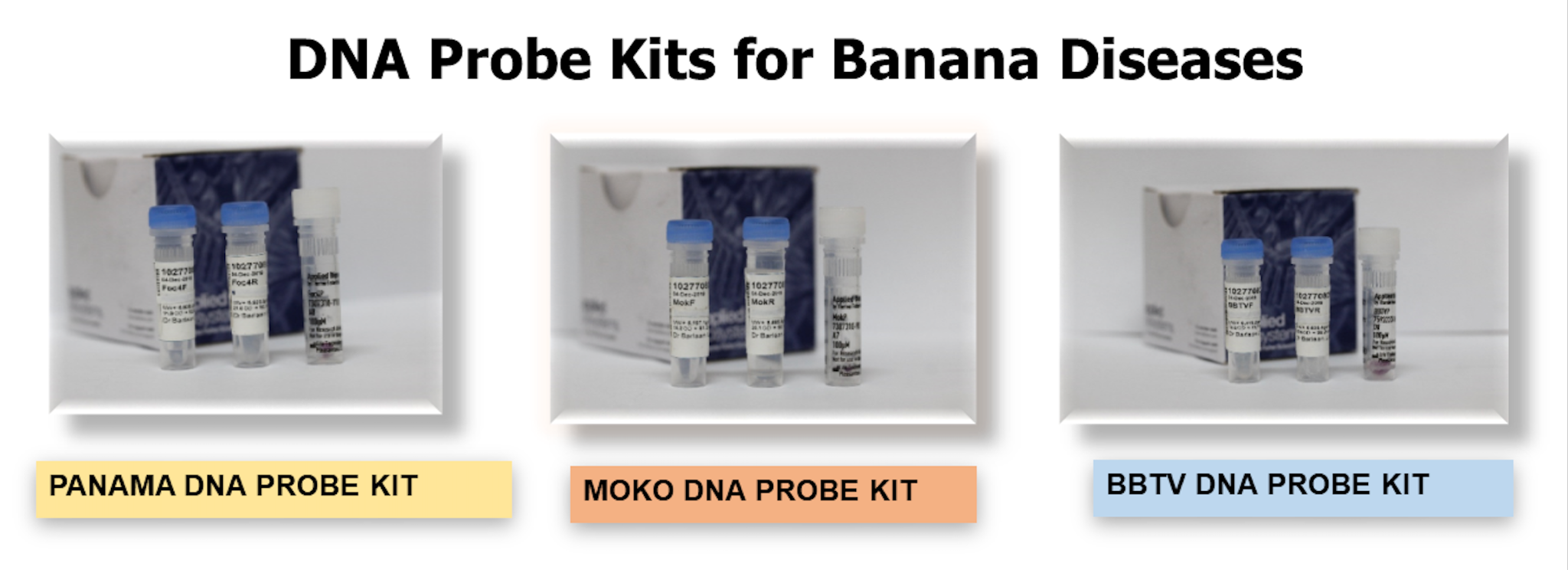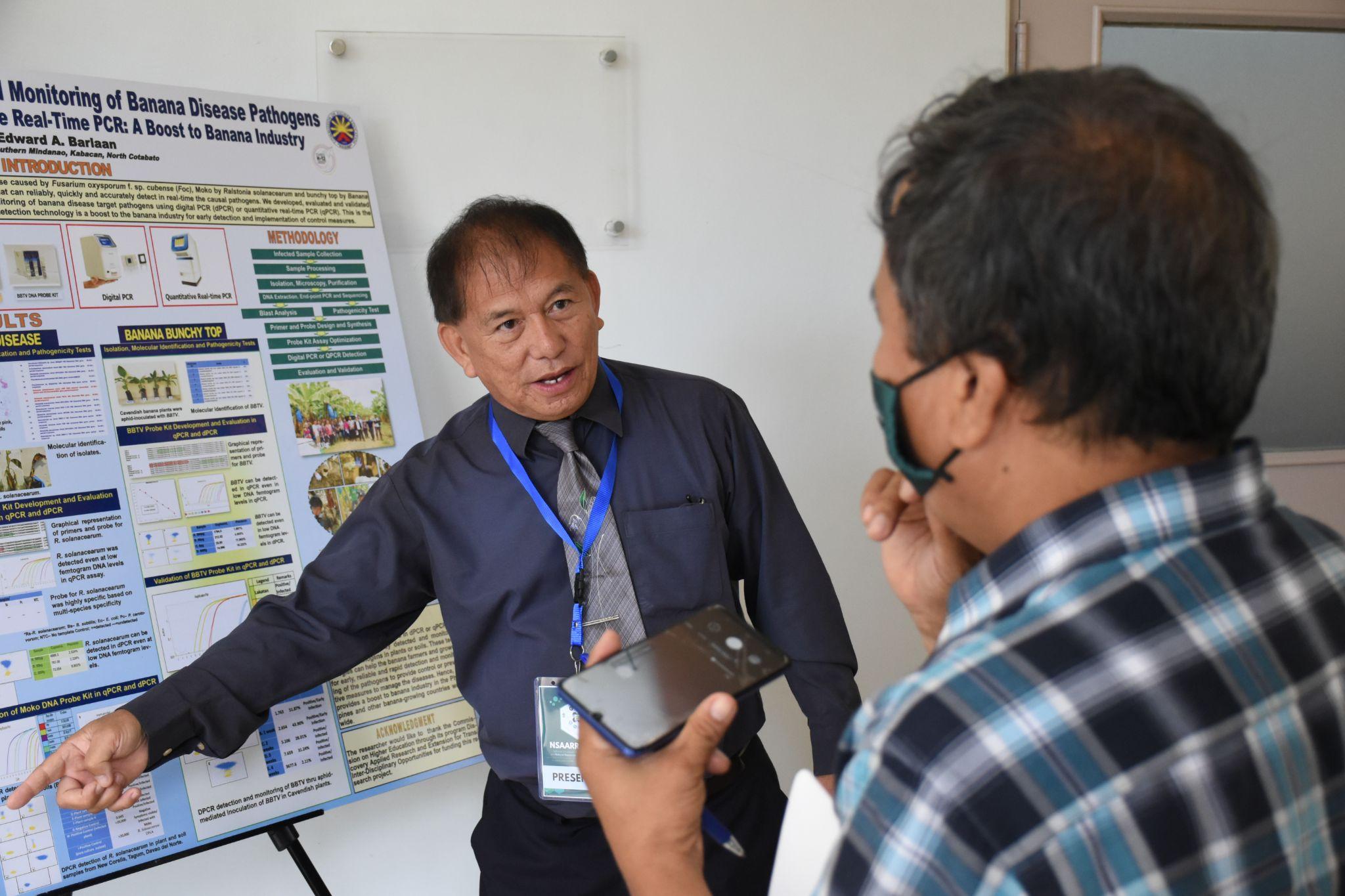Mindanawon professor, Dr. Edward Barlaan, has developed a DNA Probe Kit that enables banana farmers to detect infections early and provide necessary information mitigate them. In testing, the project was able to successfully diagnose banana diseases such as Panama Wilt Disease, Moko, Bacterial Wilt Disease, and Banana Bunchy Top Virus with high accuracy and precision at a molecular level.
“The DNA Probe Kit is more relevant as an early warning system before disease occurrence or outbreak in banana production areas,” Dr. Barlaan explained. He added that it helps determine the presence, absence, and degree of disease infection for the development assessment and implementation of management, control, or preventive measures.
The Philippines is among the top producers of bananas globally. However recently, the Philippine Banana industry took a hit from disease outbreaks. As a result, the Philippines’ position down to third from being second as one of largest banana exporters in the world. With the development of the DNA Probe Kit, Dr. Barlaan hopes that the technology will help further boost the industry and contribute in regaining the country’s position in the world stage.
The DNA Probe Kit

The DNA Probe Kit uses quantitative real-time Polymerase chain reaction (qPCR) and digital Polymerase chain reaction (dPCR) as a diagnostic test for Panama Wilt Disease, Moko, Bacterial Wilt Disease, and Banana Bunchy Top Virus. Dr. Barlaan’s detection technology is the first reported to use Digital Polymerase chain reaction (dPCR) in detecting causal pathogens of bananas. Unlike conventional diagnostic methods which are laborious and time-consuming, Dr. Barlaan’s DNA Probe Kits take advantage of qPCR and dPCR’s ability to quickly provide accurate and precise data, which is critical in detecting and measuring the level of infection.
The DNA Probe Kit boasts its ability to adapt to various sampling constraints such as time, quantity, and quality of samples. Among these is its highly specific detection of pathogens, which is important in ensuring the reliability of results. The high-sensitivity feature helps detect infection even at femtogram DNA level concentrations. During trials, the test kits were also proven to be effective as early as 1-4 weeks of infection. Furthermore, the kits were developed to be highly specific to the pathogens of the abovementioned diseases further increasing the reliability of diagnosis.

Boosting the banana industry
The development of the DNA Probe Kit enables the industry to mitigate and address infections among farmlands properly. To date, Dr. Barlaan’s detection kits are employed by big industry players in the country.
Among them is the Tagum Agricultural Development Company, Inc. (TADECO). Dr. Dennice Catambacan, research manager of TADECO, expressed her appreciation for the test kits. “The management of Fusarium wilt relies on proper detection and diagnostic tools for the TR-4. So we are hoping that in the future there will be another collaborative project that will come out from this so that we can generate management strategies,” Dr. Catambacan said.
“Napaka-klaro ng mga resulta ng DNA Probe Kits at hindi kaduda-duda dahil makikita mo doon na very sensitive yung analysis – digitalized. So, walang reason kung bakit macocompromise yung healthy plant mo na mai-eradicate because you know it’s really infected or unhealthy,” said Dr. Gaudencia Lantican, Senior Scientist at DOLE Philippines.
“I think that this is something that not only Lapanday but probably the industry has been waiting to have for several years,” said Leo Dominguez of Lapanday Foods. “It’s good to see that it’s happening right now in the Philippines,” he added.
Mr. Dominguez continued, “For me, it will greatly, really help in understanding how the disease basically behaves. And then, the most important thing: how we prevent and control the disease; how effective are the control methods that we are using. This is because everybody in the industry has several methods. Some guys are burning, some guys are using something else. Some are simply abandoning areas because they don’t know what to do and how to resolve the infestation. But then definitely, this will give us some light that we can basically find solutions and opportunities, and that we would be able to actually track them and if our controls are working or not.”
NSAARRD 2023
Dr. Barlaan’s research, “DNA Probe Kits for Detection and Monitoring of Banana Disease Pathogens in Digital PCR or Quantitative Real-Time PCR: A Boost to Banana Industry” took the spot of the research category at 2023 National Symposium on Agriculture, Aquatic, and Natural Resource Research and Development (NSAARRD 2023). Led by the Philippine Council for Agriculture, Aquatic and Natural Resource Research and Development of the Department of Science Technology (DOST-PCAARRD), NSAARRD showcases the most outstanding contributions of individuals and institutions in the field of agriculture, aquatic, and natural resources research and development.

